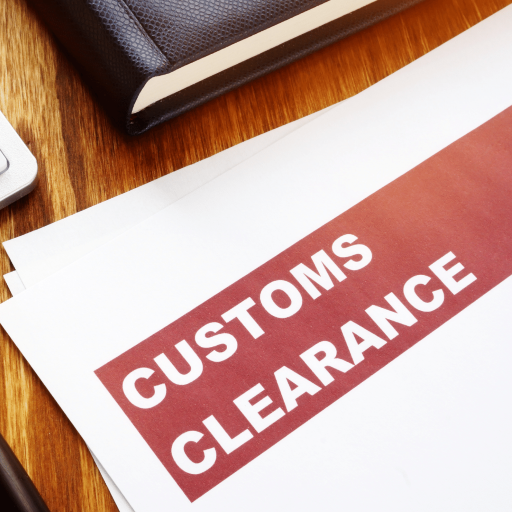What is AEO Status?
Having Authorised Economic Operators (AEO) status means a company has met a wide range of criteria and works with standards that have been specified by HM Revenue and Customs (HMRC). The UK have established their AEO Programme based on the internationally recognised standards established by the World Customs Organization. AEO is a partnership programme between HMRC, and companies involved in international trade. AEO status was introduced following the 9/11 and 7/7 terrorist attacks to enforce cargo security, therefore stopping the utilisation of global supply chains for terrorism.
AEO has Mutual Recognition and is a key element of the World Customs Organization (WCO) SAFE Framework of Standards, which has strengthened the end-to-end security of international supply chains and provided multiple benefits for importers and exporters. Mutual Recognition Agreements (MRAs) contain the conditions under which each country will accept conformity assessment results from the other. The UK has negotiated MRAs with various customs authorities around the world, ensuring that UK companies AEO status is fully recognised.
Why should you apply for AEO Status?
If your Business is looking to reduce delays, costs and interventions within your international supply chains, then Authorised Economic Operator (AEO) status could be a good solution. Companies with AEO status are considered “trusted members” of the international supply chain and consequently their goods move through customs clearance faster. AEO is available to any business which is part of the international supply chain, such as Manufacturers, Distributors, Warehouse Operators, Transport Companies, Port Operators, Freight Forwarders, Customs Agents, Importers and Exporters.
If your company is considering applying for Authorised Economic Operator (AEO) status, we can provide a full consultancy service that is designed to support your business through the whole AEO application process.
What types of AEO status are there?
There are two types of Authorised Economic Operator (AEO) currently available, with different conditions and advantages associated with each status:
AEO-C Customs Simplifications
AEO-C Customs Simplifications focuses on establishing internal quality management controls for customs compliance.
AEO-S Safety & Security
AEO-S Safety & Security focuses on supply chain security measures.
International trading companies can either apply for customs simplification or security and safety, or they can apply for both.
What are the benefits of AEO Status?
AEO-C Customs Simplifications
If a company’s international supply chain has AEO-C status and they are based in Great Britain (England, Scotland and Wales), HM Revenue and Customs (HMRC) state that they could benefit from:
- a faster application process for customs simplifications and authorisations.
- a lower risk score which may reduce the number of checks customs carry out on their documents and goods.
- a guarantee waiver up to the level of their deferment account.
If a company hold this status and they are a Northern Ireland trader, they could benefit from:
- a faster application process for customs simplifications and authorisations.
- their consignments would receive priority treatment for customs controls.
- a lower risk score which may reduce the number of checks customs carry out on their documents and goods.
- a reduction or waiver of comprehensive guarantees.
- a 70% reduction in a business’s deferment account guarantee.
- a notification waiver when making entries into a declarant’s records.
- moving goods in temporary storage between different EU member states.
AEO-S Security and Safety
If a company’s international supply chain has this status, they could benefit from:
- A lower risk score which may reduce the number of checks customs carry out on their documents and goods.
- Their consignments receiving priority treatment for customs controls.
- Reduced declaration requirements for entry and exit summary declarations.
- Reciprocal arrangements and mutual recognition.

Who can apply for AEO status?
Firstly, your company will need to be part of the international supply chain, which includes the manufacturing process, freight forwarding, import, export, and customs clearance procedures, delivery of goods and warehousing. Secondly, for a company to apply for UK Authorised Economic Operator (AEO) status the business must:
- be a legal entity.
- be established in Great Britain or Northern Ireland.
- be actively involved in customs operations and international trade.
- have an Economic Operator Registration and Identification (EORI) number.
- be tax and customs compliant for the last 3 years.
- have well-maintained Customs record keeping.
- have proven financial solvency.
- have evidence of their business procedure and processes.
What is the AEO application process?
Your company will need to submit a full AEO application that covers all the activities and locations of your legal entity involved in the international trade supply chain. The Authorised Economic Operator (AEO) criteria will be applied across all those international trade supply chain activities and locations. If your company is part of a group of companies, your business will need to submit separate applications for each legal entity within the group.
Before your company applies for Authorised Economic Operator (AEO) status you will need to gather information about your business before starting the application process. The following information is required:
- Internal structure, business ownership and management, and third-party locations.
- Volume of business, annual turnover and accounts, declarations estimates, duty and VAT.
- Customs formalities, tariff classifications, value and certification and anti-dumping or countervailing duties.
- Compliance record, convictions and customs authorisations.
- Audit trail, internal control system, flow of goods, stocktaking checks, recent customs routes audit reports.
- Customs routines, computer system backup and protection, security documentation, and compliance.
- Financial solvency and standing, Duty Deferment accounts, approved cash flow balance sheet, and profit and loss forecast.
- Site and goods security, safety requirements, risk and threat assessments, external security providers.
- Building and boundary security, access to premises and parking.
- Cargo storage, goods sealing and marking, security checks, loading and transportation.
- Employee security and training, partners and external services.
HM Revenue and Customs (HMRC) will carry out checks and make visits to your company’s premises to audit your business to ensure that all the necessary criteria are met. These checks and audits will take place after the Authorised Economic Operator (AEO) application has been received and accepted by HMRC. Therefore, it is important that your company is completely ready for HMRC officers to visit your premises. HMRC will audit these main activities within your business:
Tax and Customs Compliance
HMRC will check that your business has complied with tax and customs rules over the last three years.
Customs Record Keeping
HMRC will ask to see a well-maintained system for managing commercial records and in some cases, transportation records.
Proven Financial Solvency
HMRC will check your business financial records for a period covering the last 3 years.
Practical Standards of Competence or Professional Qualifications
Your company must be able to demonstrate and provide evidence of practical competence in customs matters for the previous 3 years.
Security and Safety
When applying for AEOS, HMRC will check the business procedures you have put in place to protect your company and your international supply chain from any risks.
How Long to Achieve AEO Status?
Depending on your company’s documented procedures, the application and submission process typically takes between 3-12 months. Once the AEO application has been submitted, HM Revenue and Customs (HMRC) will take up to 120 days to assess the submission and this process will also include visits to your company sites.
Once your business has achieved Authorised Economic Operator (AEO) status, your company will be reassessed every 3 years through on-site visits by HMRC.
At ICS Global Services Limited we provide a full consultancy service that is designed to support your business through the whole AEO application process.
Please get in touch about obtaining AEO Status
If you would like more information concerning obtaining Authorised Economic Operator (AEO) status, please contact me.

